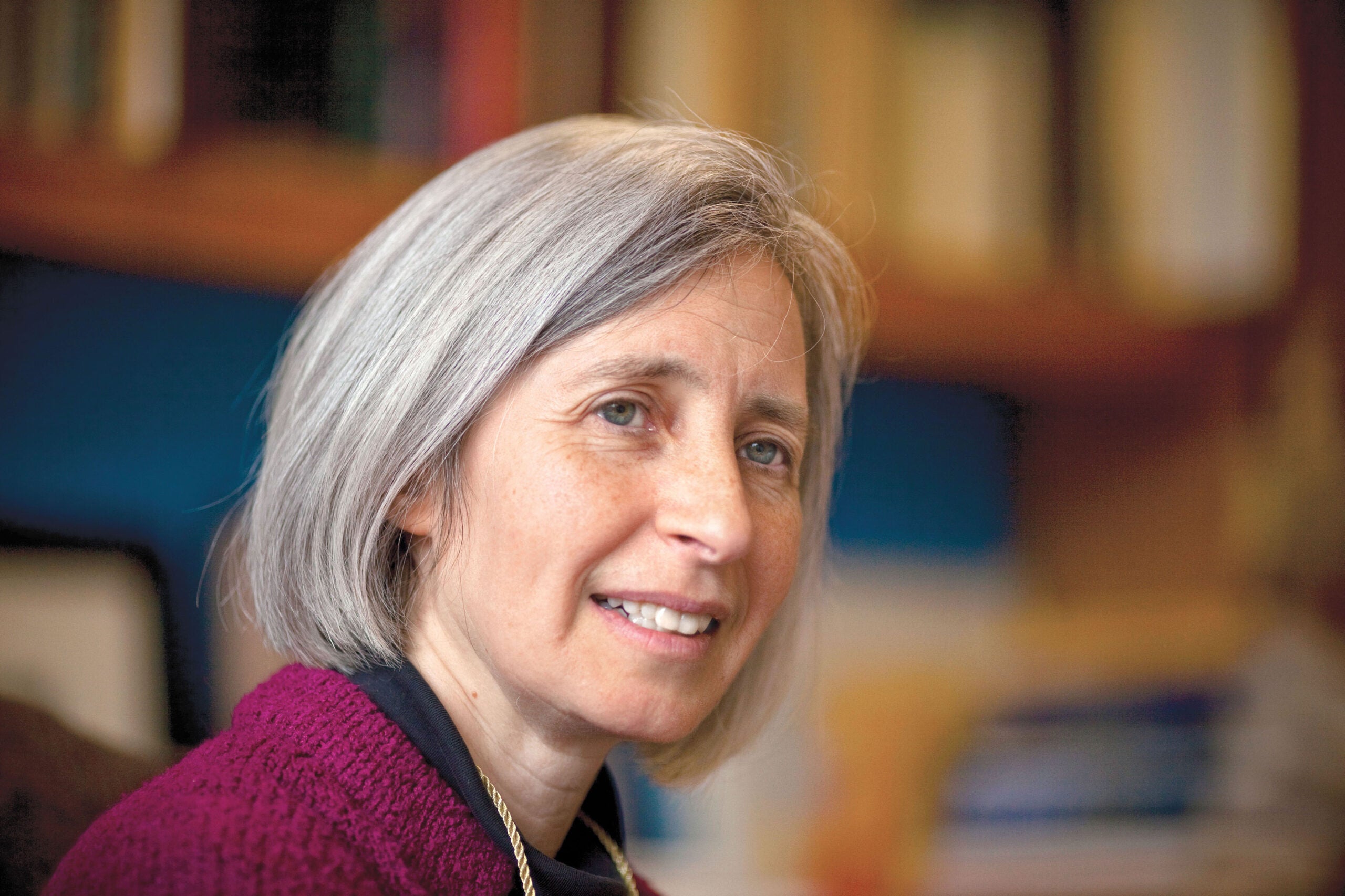“Mutual aid” may not be the first phrase that comes to mind in connection with law schools and lawyers, yet consider these examples. Harvard Law School’s Professor Jonathan Zittrain ’95 created a course joining HLS students with Stanford Law School students to brainstorm “Ideas for a Better Internet.” One student group tackled Internet security at Facebook, whose 1 billion users experience about 5 percent of all phishing attempts—600,000 of which succeed every day in locking users out of their accounts and compromising their personal data, including photos. The students developed an idea for improving security: allow a “cabinet” of friends to help reset a compromised account, instead of going through customer service, which has been chronically (and understandably) overloaded. The students called it the “25th Amendment” approach, modeled after the U.S. Constitution’s authorization of the vice president and a majority of the Cabinet to declare the president unfit for office. The students presented the idea to Facebook—and the public—in J-term 2011, and on May 1, 2013, Facebook implemented a feature that resembled it. The approach deploys mutual aid of trusted friends—identified by each user—to veto suspicious activity. It improves on-the-ground user privacy and security without relying upon traditional regulatory approaches (see “Locked Out Of Facebook? Your Friends Will Soon Be Able To Help You Get Back In”).

Classes like this allow our students to focus on real solutions to real problems, in dialogue with some of the best engineers in digital technology.
This spring the school also celebrated the launch of a new nonprofit organization founded by an HLS alumna with the help of the International Human Rights Clinic and a wider interdisciplinary community at Harvard. Led by Amelia Evans LL.M. ’11, the Institute for Multi-Stakeholder Initiative Integrity (MSI Integrity) evaluates the effectiveness of voluntary initiatives, like the Kimberley Process and Fair Trade, which address human rights problems associated with industry. By identifying minimum standards required for these collaborations between companies and civil society to prevent human rights violations and to remedy abuses, the organization can evaluate existing initiatives, support learning across them, and test this increasingly popular approach to improving human rights compliance by businesses. The effort grows from the supervision and collaboration of Clinical Professor Tyler Giannini, the International Human Rights Clinic, the Transactional Law Clinics, statisticians at Harvard’s Institute for Quantitative Social Science, and experts from the Kennedy School and Business School, and it is leading to consultations in Europe, South America, Asia and the South Pacific.
Those are two happy examples of mutual aid arising from the academic mission of Harvard Law. And in the pages of this magazine, you will read about others. But mutual aid also arose in a sadder context in recent weeks—in the aftermath of the Boston Marathon bombings, which had an impact on our surrounding communities and on our own community at HLS. The tragedy brought out extraordinary efforts across Boston, Cambridge, and the region, as first responders, including law enforcement and medical personnel, tended to the wounded and restored order out of chaos. Countless individuals volunteered to help take victims to safety and shared photographs and videos in quick and effective information gathering; everyone learned how each person can, with caution and carefulness, help guard public safety. We at HLS feel grateful and lucky. We saw strengths of emergency preparedness within the city and the university and will now redouble efforts with lessons learned in the experience. Our own teams of staff and students communicated well despite understandable uncertainty, and adapted to a rapidly evolving situation that presented huge logistical challenges. While we were forced to cancel classes and events, including class reunions, we were nevertheless able to put on some events for reunion attendees who had already arrived in Cambridge, and we were able to go forward with our Admitted Students Weekend.
Renowned Harvard evolutionary biologist Stephen Jay Gould once reflected that Charles Darwin’s image of the “survival of the fittest” could undermine human morality. Gould noted, “Perhaps cooperation and mutual aid are the more common results of struggle for existence.”
Among the many themes in the innovative research and teaching, extraordinary careers, new clinical and curricular offerings, and the upcoming 100th anniversary of the Harvard Legal Aid Bureau, all touched on in this Bulletin, you, like me, may detect many elements of mutual aid.
Those elements are certainly salient in the visionary generosity of Morgan Chu ’76—interviewed in this issue—and his wife, Helen. I will be the holder of the chair they have endowed, as will all future deans of HLS, and I am deeply honored. I am also very moved at Morgan’s description of the gift as a way “to give back.”
